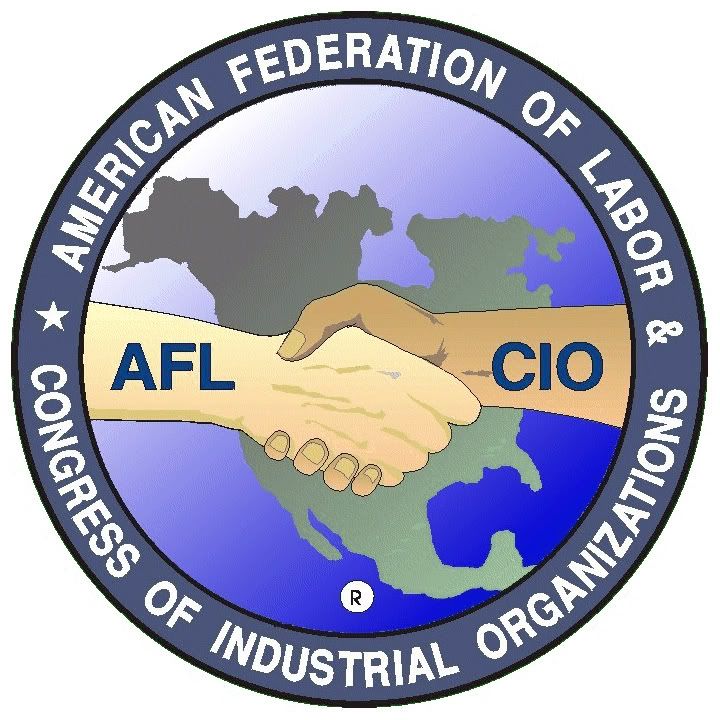by Rebecca Band, California Labor Federation
“Thank you for your service.”
It’s a line we hear and say a lot around Veteran’s Day, especially in California, home to 1.8 million veterans, more than in any other state.
But if we really want to show gratitude for our veterans, then we need to do more than utter a simple “thank you.” We need to help these brave heroes find a middle-class life when they return from serving our country.
According to the Department of Veterans Affairs annual survey of veterans, jobs are the biggest concern for our returning veterans, and for good reason — the unemployment rate for veterans of recent conflicts is an unacceptable 10 percent, and 1.5 million young veterans – many with families to support — currently live under the poverty line.
It hasn’t always been like this. According to Nick Berardino, Vietnam Veteran and General Manager of the Orange County Employees Association:
When we came back from Vietnam, they spit on us, but at least we could find a job. Today, veterans get a hand shake and a thank you, but a future that includes unemployment, low wages and no way for them to care for their families. We can and should do much better for our veterans.
Those who serve our country in uniform risk their lives to defend and protect the freedoms we all value. That’s why leaders from the California Labor movement and elected officials joined together with veterans in Sacramento today to unveil a new seven-point plan to put our state’s veterans on the path to good jobs and a middle-class life.
California Labor Federation Executive-Secretary Treasurer Art Pulaski:
Far too often, our nation’s veterans don’t receive the support they’ve earned or the services they need when returning home. California’s labor unions are taking the lead to change that. WWII veterans, along with their unions, helped build our nation’s middle class brick by brick. Veterans and labor unions are poised once again to partner to strengthen our economy and preserve the American Dream.
The seven-point plan focuses on:
1. Creating and growing good jobs for veterans. Among states that receive grants for vets from the U.S. Department of Labor, California has one of the lowest rates of placing veterans in jobs. We must align our state resources – incentives, contracts, purchasing, hiring – to encourage and reward the hiring of veterans, who represent the best in possible employees.
2. Matching training and skills to veterans. Veterans come out of active duty with significant skills that can be translated into a variety of careers. Too often, the language used to describe military job duties doesn’t match the language of those hiring in the civilian world. We support policies that capture and maximize the skills vets have acquired to gain them the best jobs in growing fields that pay living wages.
3. Protecting jobs for veterans. Workers should be rewarded, not disadvantaged, when they go into active or reserve service. Vets should have guarantees that their jobs will be there when they return, that they be able to maintain their health care coverage, and that they will have recall rights should their jobs get eliminated.
4. Streamlining veteran job services. According to multiple studies, California does not provide a coordinated, integrated system that streamlines employment-related services to veterans, and has failed to meet veteran employment goals set by federal grants. It’s time to streamline the delivery of job services to veterans and that tailor services to the special needs and skill sets of veterans.
5. Providing more housing for veterans. Vets make up a disproportionate share of the homeless population and are significantly more likely than the general population to become homeless. No one should be forced to live on the street after serving our country, which is why we support policies and funding to build more housing, including rental units, for veterans.
6. Ensuring veterans receive their benefits. California lags behind other states in the amount of benefits claimed by veterans. Even though veterans are eligible for federal pensions and health benefits, many California vets rely on public state programs rather than collecting the benefits they’ve earned and deserve. A 2013 Little Hoover Commission report estimates that California leaves between $500 million and $1 billion in federal dollars on the table due to veterans not signing up for benefits.
7. Providing services for diverse veteran populations. Currently, 70 percent of veterans in California are age 50 or over, but at the same time, large numbers of younger veterans — many of whom are women and minorities — are returning from Iraq and Afghanistan. Different groups of veterans will need different services for their transition to civilian life, which is why we support tailoring programs and policies to the needs of the diverse veteran populations in the state.
Yvonne Walker, U.S . Marine Corps Veteran and President of SEIU Local 1000:
We owe every man and woman who goes into service for their country a debt of gratitude. But gratitude isn’t enough. At the very least, they have earned the peace of mind that their jobs will be there when they return, that they be able to maintain their health care coverage, and that they will have recall rights should their jobs get eliminated.
In addition to the policy agenda, Labor groups also have identified needed projects and local opportunities where are coming together to provide service for veterans such as renovating, painting or improving the grounds at local VFW or American Legion halls; hosting food and supply donation drive to support veterans in need; and assembling care packages along with letters to be sent overseas.
Orange County unions led by the Orange County Employees Association (OCEA), along with veterans and community leaders, will hold a large Veterans Day special event to pay tribute to Veterans and their families following the “Day of Service” volunteer projects.

